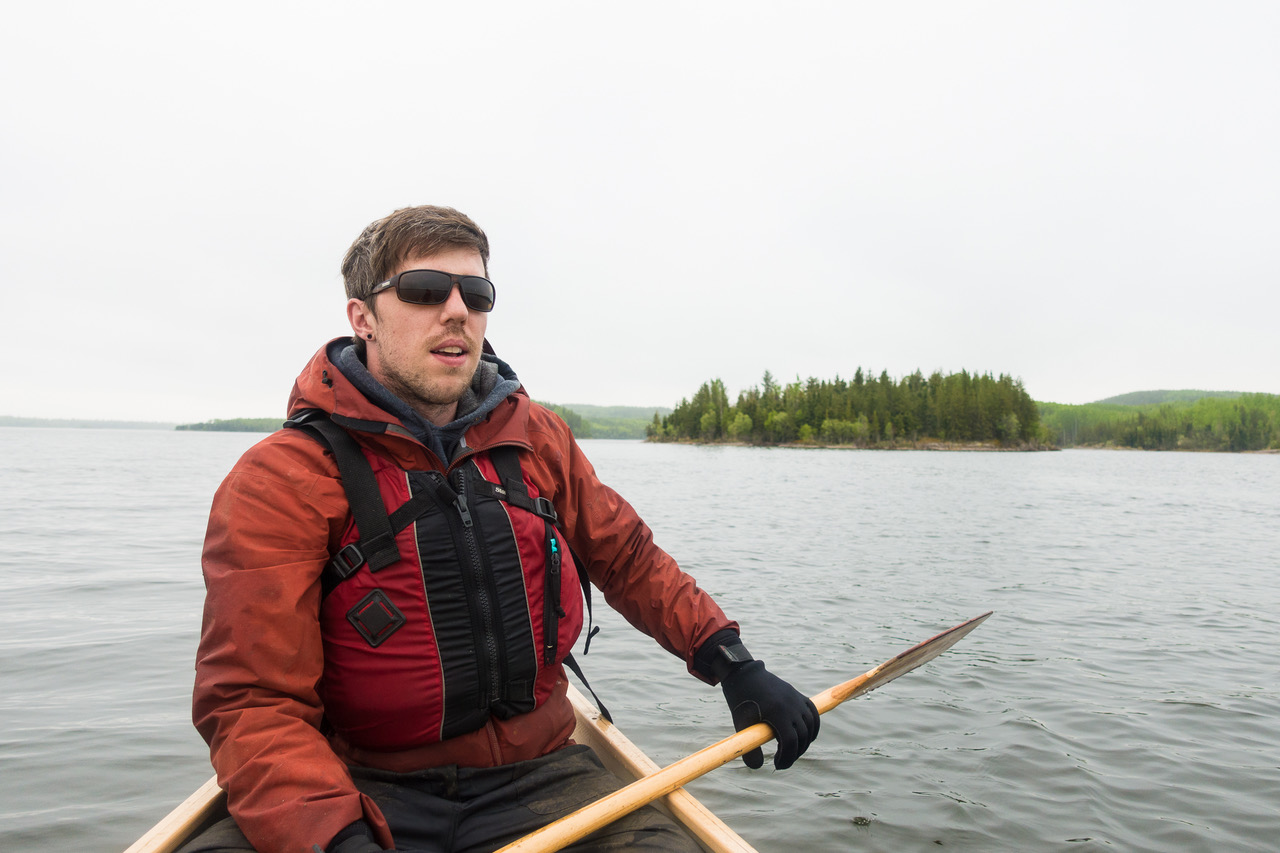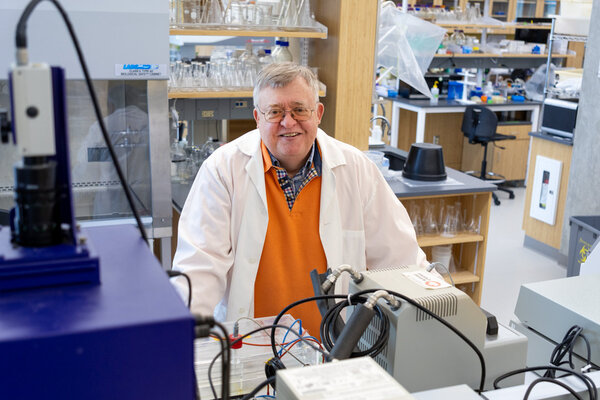
Winner of Indigenous scholarship works to preserve northern landscape of his childhood
Biology PhD student Aaron John Bell is the 2019 recipient of a $20,000 Queen Elizabeth II Centennial Aboriginal Scholarship
By Chris Putnam
When should a forest fire be left to burn?
That question is at the heart of research by the University of Saskatchewan (USask) graduate student chosen as this year’s recipient of the $20,000 Queen Elizabeth II Centennial Aboriginal Scholarship.
Through his work, Aaron John Bell, a biology PhD student in the USask College of Arts and Science, will contribute to better practices for conserving Canada’s ecosystems and preserving its diversity of life.
Bell, a Métis scientist originally from La Ronge, Sask., said he is “thrilled” to be chosen for the prestigious award.
“This scholarship will go a long way to helping me complete my PhD program successfully,” said Bell, who previously received a Bachelor of Science in biology from USask and a Master of Science in conservation biology from the University of Alberta.
The Queen Elizabeth II Centennial Aboriginal Scholarship is awarded annually to a First Nations or Métis student by the Government of Saskatchewan on the basis of academic excellence.
Another $20,000 award, the Queen Elizabeth II Scholarship, has been awarded to Oxana Pimenova, a Master of Public Policy student in the Johnson Shoyama Graduate School of Public Policy at USask.
Bell’s PhD research focuses on the management of forest fires to promote biodiversity in the boreal forest—the region in which he grew up.
“Historically, forest fire was viewed very negatively and seen as this destructive agent that should be suppressed,” said Bell. “More recently, we’re realizing that fire is important in maintaining healthy forests and that many species living in fire-prone areas like the boreal have co-evolved with fire.”
A warming climate and decades of firefighting efforts have changed the type of fire on the landscape, explained Bell. Small wildfires have become rare, while large, intense fires have grown more common.
“This has important consequences for fire-prone landscapes and species living there,” said Bell. The researcher is examining how the new fire patterns reduce the diversity of beetles, plants and birds.
Bell is currently travelling by canoe to forested islands in Northern Saskatchewan, examining the history of fire and the present biodiversity of each island.
“I count myself lucky to be exploring the islands I grew up on as a kid. La Ronge was threatened by wildfires in 1999 and more recently in 2015 when the entire community was evacuated—so there’s definitely a history of fire here,” he said.
One of Bell’s goals is to identify the best fire patterns for conserving biodiversity, which will inform fire managers of when to allow fires to burn or even when to set controlled burns.
“Hopefully, our research will help guide this balancing act where we manage fire both for the good of the biosphere and the people living in it,” Bell said.
Dr. Iain Phillips (PhD), who co-supervises Bell along with Dr. David Wardle (PhD) of Nanyang Technological University in Singapore, said he believes Bell’s selection for the scholarship is “simply a reflection of the exceptional caliber of academic and philosophical character he brings to science.”
“His imagination and creativity are unique across the breadth of students I have trained and worked with through my career, and I expect this award will simply add fuel to his productivity and what he can accomplish through his PhD studies,” said Phillips, an adjunct professor in the USask Department of Biology and senior aquatic macroinvertebrate ecologist with the Water Security Agency of Saskatchewan.
The type of knowledge coming from Bell’s work will be “crucial” to achieving goals set by Canada and Saskatchewan for conserving land and maintaining biodiversity, noted Phillips.
“Aaron’s research already has, and will continue to inform how the management of natural processes can be optimized for the greatest reward in biodiversity and a sustainable and productive future for Canada’s forests,” Phillips said.


